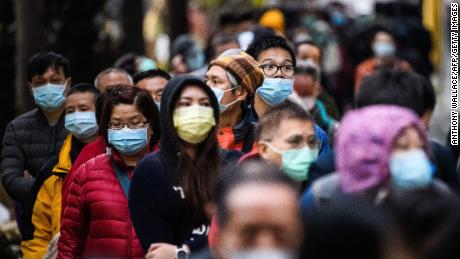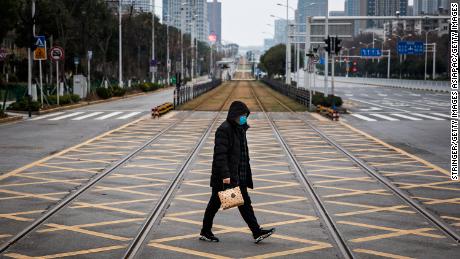Not just a statistic
On Friday, Li became one of more than 700 casualties of the Wuhan coronavirus. But he is much more than a statistic. While Li may not be immortalized to the same degree as the lone protester who faced off against a column of tanks in Tiananmen Square during the 1989 anti-government protests, his "normal guy" persona, and sense of duty has transformed him into an overnight hero -- and his death has unleashed an unprecedented tsunami of grief and anger that probably has not been seen since President Xi Jinping rose to power. 
This was a rare show of confusion from the Chinese government, as well as a stark reminder of the extent to which it is willing to exert control over the narrative.
And to many Chinese people, it was a tipping point, given that manipulation and suppression of information is what allowed the wide spread of the novel coronavirus in the first place. Anger expressed on online forums is intense, with even prominent officials, academics and executives expressing grief and outrage. In online posts and in open letters, demands range from an official apology and admission that the government had made a mistake, to a state funeral for Li and even a US-style whistleblower protection law. In an apparent effort to appease the masses and quell the backlash, central authorities announced they are dispatching a team from the country's top anti-corruption agency to Wuhan to look into "issues related to Dr. Li Wenliang." The crisis in handling the outbreak, coupled with the botched rollout of the news of Li's death, is "as close the an existential crisis for (Chinese President) Xi and the (Communist) Party that I think we have seen since 1989," wrote Bill Bishop in his Sinocism newsletter.
Beijing's strategy
It's unclear what Beijing's strategy is at this point. While the Chinese government has taken swift action to try to curtail the coronavirus' spread since news of the outbreak blew up, we don't yet know whether the containment measures are working to stabilize the situation and bringing a quick return to normality.

It is important to remember that China's model of governance has always been one based on paternalism, and the authoritarian hold Xi and the Communist Party have on its people relies heavily on economic growth.
But that model is now under threat -- and the coronavirus has revealed deep structural flaws and incompetence in the government. Such revelations undermine the tenuous trust that Xi must maintain with the Chinese people, lest the system crumble. While lower level officials will almost certainly take the fall, the Communist Party will put on a united front and Xi -- who has been in and out of public view the past few weeks -- will make every effort to maintain his power.
If Beijing follows its usual playbook, it will feign an investigation into what happened to Li -- perhaps continuing to express remorse for the way he was treated -- and then work hard to gloss over the incident and hope that his death fades from collective memory.
Meanwhile, though the government is now outwardly acknowledging Li's death, officials appear to be employing a sledgehammer approach to online displays of discontent, deleting posts and even closing down WeChat accounts -- which one of my mainland business contacts likened to a digital death sentence in China. In another worrying sign, a lawyer-turned-citizen journalist who had been posting critical videos of the outbreak response from Wuhan, has been forcibly quarantined, according to his friends and family.
What will come of Li's main legacies, which include calls for more freedom of speech and accountability on the mainland? The brutality unleashed on anti-government protesters in Hong Kong in the past few months is a pretty good indicator of how unlikely it will be for the Chinese government to loosen control over its people.

No comments:
Post a Comment